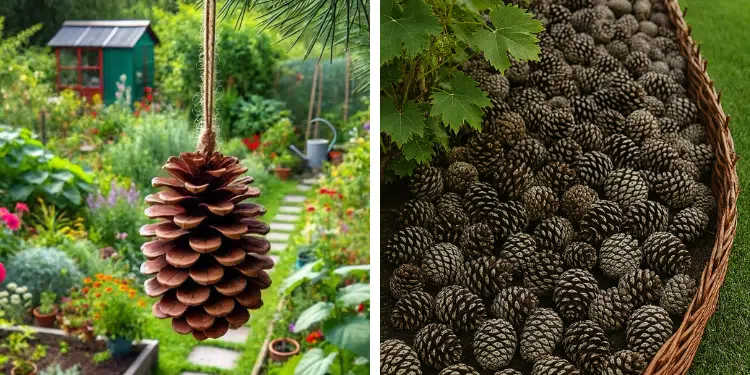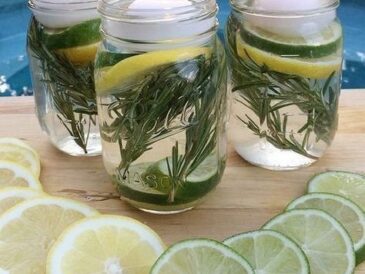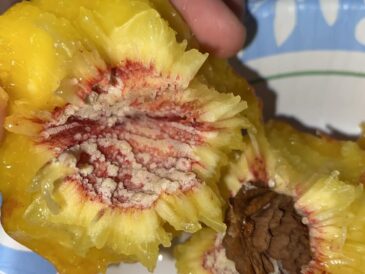10. Attract Birds and Wildlife
Pine cones can also attract garden allies. Birds love them as feeders, and small mammals may use them for nesting material.
How to use:
- Coat cones in peanut butter, roll them in seeds, and hang them as bird feeders.
- Scatter them near compost piles or brush piles to create natural habitat diversity.
11. Compost Accelerator
While pine cones decompose slowly on their own, shredded or crushed cones help aerate compost piles and add valuable carbon, balancing high-nitrogen materials like kitchen scraps.
How to use:
- Break pine cones into small pieces before adding them to the compost.
- Mix them evenly with green materials for optimal decomposition.
12. Natural Pest Deterrent
The resinous compounds in pine cones have mild insect-repelling properties, especially against ants and slugs. Their tough texture also discourages digging animals.
How to use:
- Place cones around vulnerable plants or raised beds.
- Combine with pine needles for an even stronger natural deterrent barrier.
13. Creative Garden Crafts
Beyond functional uses, pine cones bring a rustic charm to garden décor. Use them to create wreaths, ornaments, or plant markers. They can even serve as mulch art or seasonal centerpieces.
Idea: Spray pine cones with natural beeswax or shellac to make them weather-resistant and long-lasting in outdoor displays.
14. Raised Bed Fillers
Filling large raised beds with quality soil can be expensive. Pine cones make a great bottom filler – they’re lightweight, create air pockets for root oxygenation, and decompose slowly to improve soil structure over time.
How to use:
- Fill the bottom 6–8 inches of a deep raised bed with pine cones.
- Add layers of compost, leaves, and quality topsoil above.
15. Fire-Safe Mulch for Perimeter Zones
If you garden in a wildfire-prone region, pine cones (when used whole and unshredded) are a safer mulch alternative than fine bark or dry straw, which ignite easily. Their larger size reduces surface area and slows combustion.
Tip: Always follow local fire safety regulations when using organic materials near structures.
Safety Tips and Precautions
While pine cones are generally safe and beneficial, here are a few precautions:
- Avoid Fresh, Sticky Cones: These may contain sap that can attract unwanted insects or mold. Always dry them first.
- Don’t Overuse: A thick layer (over 4 inches) can block water and air from reaching the soil.
- Beware of Treated Areas: Avoid collecting pine cones from sprayed or pesticide-treated areas if you plan to use them near edibles.

In the world of gardening, the most powerful tools are often the ones nature gives us for free – and pine cones are a perfect example.



